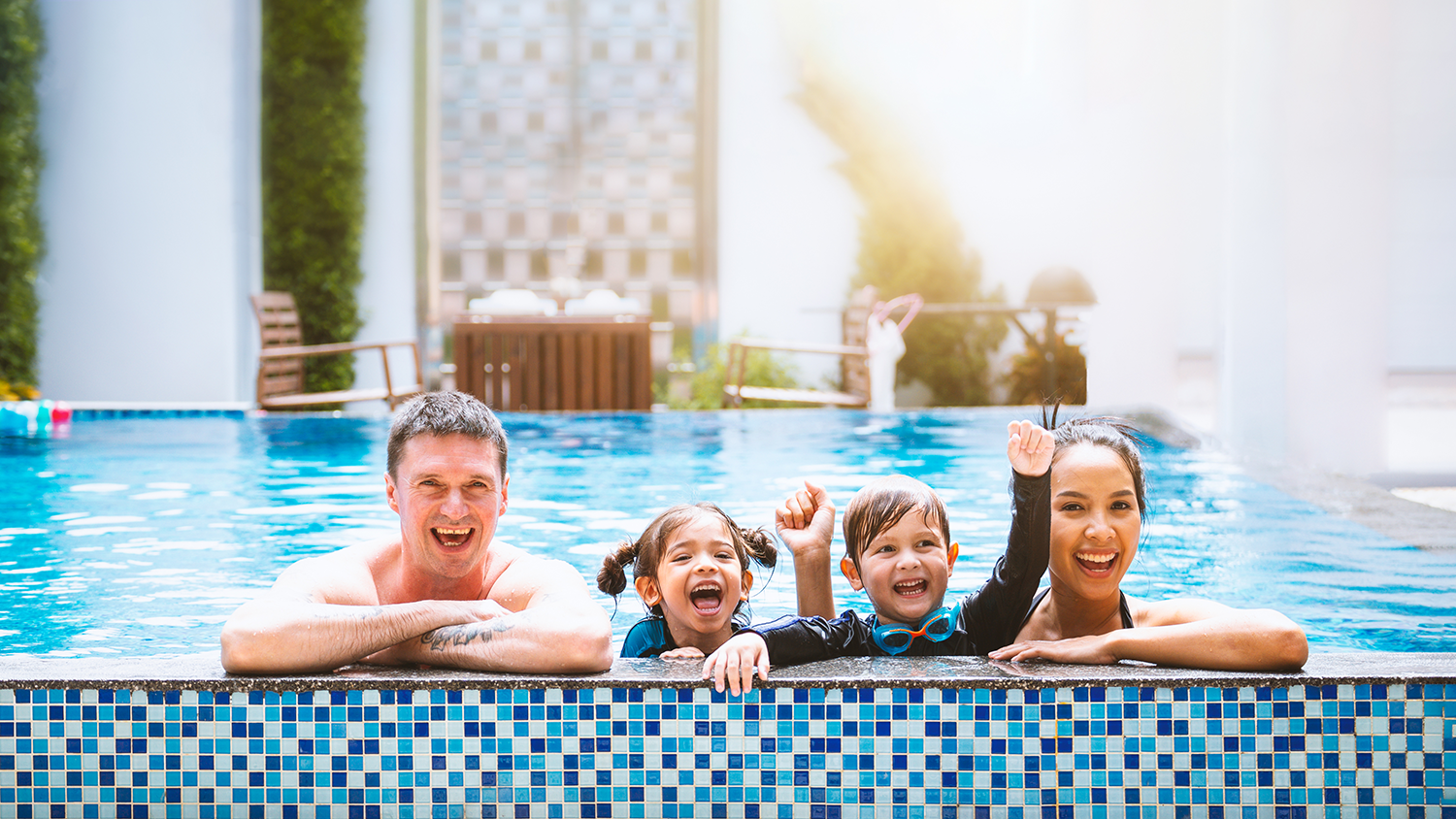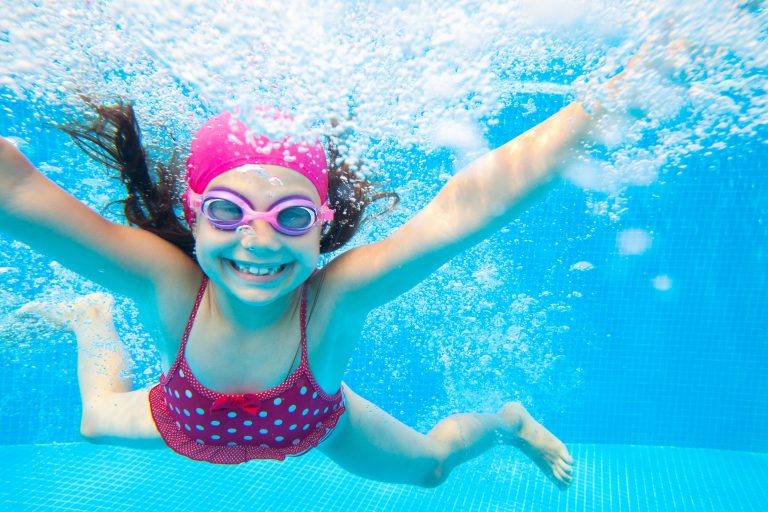After reading through Guilty Mother’s blog, I stumbled upon the above statistics. Needless to say, they threw me. Does parenthood really have to mean automatic guilt? Every mother, or father, wants to parent their child in the correct way – which translates into doing what we see to be the best for our kids. But when did this inherent self-accusation become so deep rooted in our society, that parents have lost sight of ensuring that their own health and well-being is preserved? Surely parental wellness is inextricably linked to that of their children’s – and therefore wanting to take some time for self-care should be met with understanding, not judgement. This could mean wanting to pop to the gym, enjoy an hour of downtime, or relax when you’re on holiday… but can this ever be a possibility?
When setting off on a family break, I’m sure that parents would appreciate a stress-free and untroubled time, which is not always easy when your child is in, or around, water. Although children should never swim alone, and should always be supervised – the ideal goal would be for a mother or father to be rest assured that their child is a confident swimmer. To achieve this, every little one should be taught the principles of floatation along with energy-saving, which in turn enhances water confidence and safety.
With this in mind, what exactly should be implemented in terms of making sure an individual is safe when swimming? The RNLI offers plenty of useful advice on this topic, as part of their ‘Respect the Water’ campaign. In order to minimise the risk of drowning, the RNLI have produced ‘5 steps to float’, which simply and succinctly explains how to float on your back. Firstly, it’s suggested that you should fight any instinct to thrash about, and instead lean back until your body is parallel to the water, whilst you extend your arms and legs. If appropriate, moving your limbs to help you assume this position is advised. You should then float until you have complete control of your breathing, and only then should you call for help or swim to safety.
Championing this approach relates to our own unique practice of teaching, which rests on encouraging all students to float before they learn any form of swimming technique. Some traditional methods instruct children to swim a few metres before they are completely in control of an aquatic environment. This is outdated, and falsely gives parents the impression that their child is safe when they are not. Instead, every little one should initially learn to float on both their back and front to encourage water confidence, safety and relaxation. When floating on their front, the water should hit the pupil’s hairline, and the body should naturally find the right buoyancy. Legs should be straight, with no movement at all to preserve energy. Similarly, when floating on their back, students should have their ears in the water, with their hips up and feet kept underwater.
Alongside this, our method encourages water confidence in a manner of different ways too. The aim of building water confidence is to prevent fear, which can lead to panic. By teaching children about the properties of water, you can help to reduce or eliminate this fear by showing them how to have fun and be safe. Building on this, we don’t use armbands or floatation devices in our teaching, which encourages a sense of achievement and control when swimming. Additionally, when on holiday use of a lido or other inflatables can be hazardous– as they can cause the tide to take you out to sea, and they may ‘pop’. Ultimately, by exercising every possible avenue to instil the best way of acting in the water, we give children the highest chance of staying safe when they swim for themselves.
Having enrolled your little one in our lessons, you can relax a little on holiday, knowing that they will feel safer and more confident when swimming. Although we would never recommend sitting back and assuming your child is completely secure around water, do feel comforted that they will be equipped with the correct protective practices. So battle that seemingly innate guilt – instead, book an even better adventure than last year, and enjoy yourself (whilst your children do too)!

 LOG IN
LOG IN
 CONTACT US
CONTACT US








